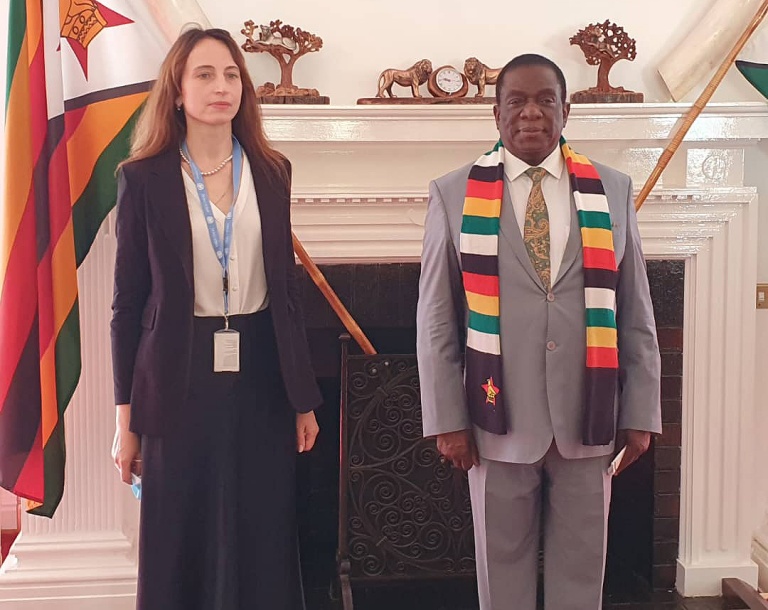UN sanctions envoy notes ED regime lagging behind in corruption fight
By Nyashadzashe Ndoro | Nehanda Politics |
The United Nations Special Rapporteur on the negative impact of unilateral coercive measures on the enjoyment of human rights, Alena Douhan, has noted that President Emmerson Mnangagwa’s regime is lagging behind in the fight against corruption in Zimbabwe.

Douhan’s ten day visit to Zimbabwe ended on Wednesday. The purpose of the visit was to assess the impact of targeted sanctions on the enjoyment of human rights by people living in Zimbabwe and other affected people.
She called for the lifting of United States and European Union sanctions that were imposed on Zimbabwe citing that they were infringing the country’s right to development.
But the UN envoy noted that the government had not done so much to promote its pledge to fight rampant corruption in Zimbabwe. She added that the Zimbabwe Anti-Corruption Commission (ZACC) needed to be empowered more to tackle corruption.
“While welcoming certain legislative and organizational steps taken by Zimbabwe to suppress corruption, the Special Rapporteur calls on the Government of Zimbabwe to implement systematically its program to achieve that objective, enabling the effective functioning of the anti-corruption commission and the system of anti-corruption courts, and proceeding with complex and verifiable investigations,” read part of the preliminary findings.
Douhan said sanctions were also increasing corruption by limiting some citizens from doing direct bank transfers.
“She amplifies the fact that unilateral sanctions introduced allegedly to minimize corruption in practice result in its growth because of the impossibility to do direct bank transfers, need to involve third parties and use non-transparent mechanisms,” read the report.
The Special Rapporteur also called on banks and private companies to behave in accordance with the Guiding Principles on Business and Human Rights to avoid over-compliance and the consequent violation of rights of nationals and residents of Zimbabwe.
Douhan reiterated the “obligation of all states and regional organizations to comply with the principle of due diligence and to take all necessary measures to guarantee that activity under their jurisdiction and control won’t affect the human rights of people in the country and beyond national borders.” Nehanda Radio






